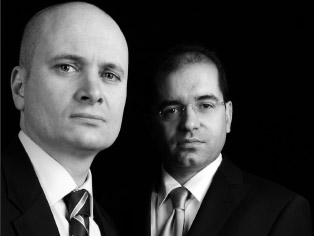 The authors of After Bush: The Case for Continuity in American Foreign Policy are featured in June 2’s Wall Street Journal give us their take on George Bush and the fate of US Foreign Policy post election season.
The authors of After Bush: The Case for Continuity in American Foreign Policy are featured in June 2’s Wall Street Journal give us their take on George Bush and the fate of US Foreign Policy post election season.
Want more George W. Bush foreign policy? Elect John McCain – or Hillary Clinton or Barack Obama. Regardless of who wins in November, the current foreign policy will live on in the next White House.
None of the main candidates has disavowed the war on terror. Each has called Mr. Bush tactically deficient. But the debate over the war on terror is over how, where and when. The candidates have all argued that they would do a better job of fighting it.
Administrations bequeath foreign policies to their successors that are then tweaked, but rarely transformed. The seeds of Ronald Reagan’s Cold War strategy were sown in the defense buildup of the later Jimmy Carter years. President Bush’s purported “obsession” with Baghdad began in the hawkish statecraft of Vice President Al Gore. In 1998, Bill Clinton made regime change official U.S. policy, and in 2003 Mr. Bush made it a reality.
The last great liberal hope to win the White House – Bill Clinton – committed more troops to more parts of the globe than any president since World War II. Since the end of the Cold War, America has undertaken at least nine military interventions overseas, under three presidents of both parties in two distinct historical eras (pre- and post-9/11). This history suggests that the next great liberal hope – Mr. Obama or Mrs. Clinton – would probably continue the trend.
Furthermore, the departure of Mr. Bush will hardly leave the nation’s foreign relationships in tatters. Despite much American introspection, Euro-liberal sniping and Latin American leftist fantasizing, the quantity and quality of America’s formal friendships have endured, if not actually increased, since 2001. Eighty-four governments, out of a world total of some 192, are formally allied with the U.S.
Foreign leaders such as France’s Nicolas Sarkozy and Germany’s Angela Merkel clearly see that their true interest resides in maintaining and renewing their relationships with the U.S. Few governments have prospered by severing such bonds. In Asia as well, nations are looking to strengthen their ties to America. China needs the U.S. market. India is moving toward America, not away.
The number of America’s foes hasn’t grown under the Bush administration. The actual number of our enemies can be counted on one hand: Cuba, Iran, North Korea, Syria, Venezuela. With the exception of the latter, all these enmities predate Mr. Bush and his successor will inherit them.
Certain aspects of anti-Americanism are essentially immune to what any president does. The U.S. can bomb Christians to protect Muslims, as it did in Bosnia in 1994-1995 and Serbia in 1999, and still somehow augment the fury of radical Islamists.
It’s also important to remember that we’re winning the war in Iraq. A President Obama would risk too much with a precipitous withdrawal, especially if it was just to fulfill an early campaign pledge that was adopted more to establish blue water between him and Mrs. Clinton than to reformulate the war on terror. Mr. Obama’s opposition to the Iraq war is empirical – “it didn’t work” – rather than ideological.
Mr. Obama is capable of changing his position to reflect events on the ground. He is not dedicated to a peacenik vision of immediate withdrawal. He will not desert Iraq if doing so puts U.S. national security at risk.
The desire to get rid of George W. Bush will not make his replacement any less vociferous and committed to the current president’s pursuit of American prosperity and security. As such, rising expectations in and outside America for rapid foreign-policy transformation are likely to lead to disappointment. As a Romanian proverb reminds us: “A change of leaders is the joy of fools.”
Latest Comments
Have your say!